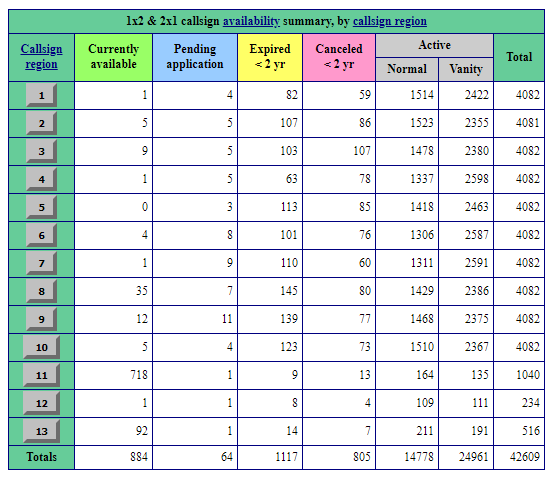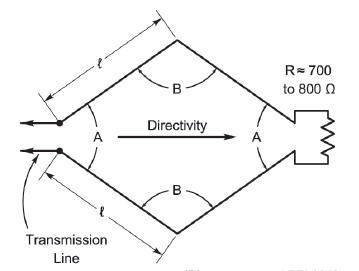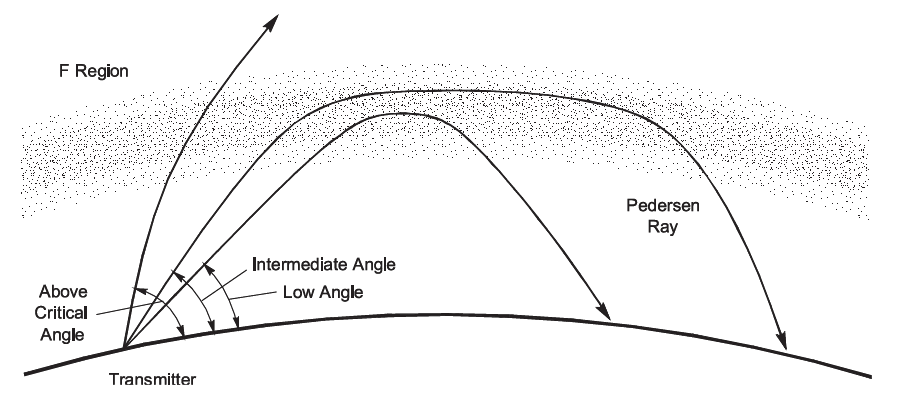So you’re a Technician class license holder? Congratulations on passing that exam! You can be proud—the public is almost completely unaware that Hams have to take an exam and are federally licensed. I hope you’re having a good time being a radio Ham, trying new things and learning new skills.
Perhaps you’ve even extended your examination excellence in taking the next step to General? The doors of HF operating and technology are thrown open wide for you! I’m sure your studies led you through some unfamiliar territory, but here you are having a great time with all of it.
So why keep going? What is it about the Amateur Extra license that makes it worth the effort? Full disclosure: I have been an Extra class licensee since the mid-1970s and am the author of the ARRL’s Extra Class License Manual. Maybe I don’t have a completely unbiased view, but I’ll bet your friends and club members who have their Extras are encouraging as well. Getting my Extra was one of the high points of my Ham radio history, and it will be one of yours, too, so let me see if I can convince you to take the plunge.
More Frequencies
The most obvious and oft-cited reason to upgrade is that the last of the amateur bands, the Extra-only segments, will finally be yours. (See the table below for what those segments are.) Over our long history, these frequencies have been the best for working DX stations on CW and phone. No matter what mode you prefer today, they are still the best for DXpeditions and day-to-day DX alike. A look at the band plans for recent and upcoming DXpeditions will show a lot of frequencies in these segments.
Contesters also know those are where the best “rates” can be obtained. At the low end of the HF bands is where many callers start tuning up the band. While it’s also common to “click and call” by using spotting network information to jump around the band, “Big Guns” still find high rates lower in the bands. Noise levels are lower, too, since there are fewer stations transmitting nearby.
| Extra Class Band Segments | |
| Band | Frequencies (MHz) |
| 80 meters | 3.500–3.525 and 3.600–3.700 |
| 40 meters | 7.000–7.025 |
| 20 meters | 14.000–14.025 and 14.150–14.175 |
| 15 meters | 21.000–21.025 and 21.200–21.225 |
Will that matter if you are not into DXing or contesting? (Yet…!) Perhaps not right away, but you’ll find it nice being able to spin the dial (or move your cursor) into previously forbidden territory. You’ll feel that “pull” every time you get on one of the bands with an Extra-class segment. Being an Extra has practical applications, too. Maybe one day you’ll need to move a station from your 75 meter net into a quiet part of the band to pass some messages during a drill or actual response. Regardless of the need, having all of the amateur frequencies available to you may turn out to be useful in ways you don’t anticipate.
Call Signs
Another cool part of being an Extra is having a whole new block of call signs available to you. (The full set of amateur call signs is published on the FCC’s Amateur Call Sign System website. Look for the Sequential Call Sign System tab.) I was lucky that soon after I’d upgraded, the new 1-by-2 “N” call signs became available. I accepted the next available call and have been N0AX ever since, no matter where I’ve lived.
While calls in the 1-by-2 block are hard to get, you are entitled to apply for them when they become available by using the Vanity Call System. You can find out what call signs are available by using websites like Radioqth and AE7Q. (The table of available Extra class call signs below is from AE7Q’s website on March 9, 2020.) The ARRL’s vanity call web page has information on the application process and other resources.

As a real treat, some of the 1-by-2 calls beginning with K or W have been around since the very beginning of the call sign system in 1934. With some research you may find the previous calls were held by an inventor, official, or other important early amateur. For example, W1AW was the call sign of the ARRL’s founder, Hiram Percy Maxim, who was once just “1AW” before country prefixes were a gleam in the ITU’s eye!
Learn About New Stuff
The Extra class exam covers a lot of new ground. The question pool is 50 percent larger than either the General or Technician, so expect to find more topics and details. Not to worry, though. You’ve already conquered at least one exam, so you have a sense of how the regulations and basic technical functions work.
How much harder is the Extra exam? Let me give you a sense of how the license classes move “up the ladder.” If a Technician learns how to follow a rule, a General learns why a rule is needed, and an Extra learns how and when to apply the rule—that’s the overall approach. The same thing goes for technical topics: use, apply, and design along with the license classes.
Will you need to become an electrical engineer to pass your Extra? Not at all! You’ll have to dig a little deeper into the technical details and there will be a formula or two to remember and use, but there are plenty of training materials and online practice with the actual exam questions, just as for Technician and General class studies. You’ll know more about modulation, signals, receivers and transmitters, power supplies, and circuits, too.
One of my favorite parts of studying for the Extra (or writing about it) was learning about different antenna designs and unfamiliar types of propagation. Have you ever wondered about the diamond-shaped symbol of the ARRL? It’s based on the venerated rhombic antenna design—and that’s part of the Extra exam!

What are these phased arrays that are popular on the lower HF bands? How does long-path propagation work? What’s a “Pedersen ray”? Like a good spaghetti sauce, “It’s in there!” (Graphics courtesy of the American Radio Relay League)

More Skills Make You a Better Mentor
With all the added knowhow you’ll have as an Extra, you will find yourself being able to answer questions that were over your head before. Remember when you were just getting started and how important it was to get help or a question answered by a more experienced Ham? Well, that more experienced Ham is now you!
One of the most-needed and most-requested forms of assistance from new Hams is training and instruction. Soon after you got that first license, you probably realized that an amateur radio license is really a “license to learn.” It sure is—and the longest Ham tradition of all is mutual assistance. After all, there was no ARRL and there were no license study guides back in those early days. (There weren’t even any licenses before 1912.) Hams taught each other, and that tradition continues today.
Even if you’re not teaching in a formal class, just being able to answer questions or help find the resources to get the right answer is very helpful. And it’s rewarding. Not only do you learn more yourself according to, “To really learn something, teach it!” but you also experience a real sense of accomplishment that you have helped someone else in a useful way.
Top Level Exam Proctoring
But wait, there’s more to the mentoring. As you well know, the amateur service depends on volunteers to conduct all of the license exam sessions. You may also remember the exam questions about what class exam can be administered. Well, as an Extra, not only are no frequency privileges off limits but you can be responsible for giving and grading any class of exam.
Extra class licensees are in high demand for exam session administration. This is an excellent way to “give back” and reward those who mentored you. Speaking as a Volunteer Examiner (VE) myself, with dozens of exam sessions administered, I can say with confidence that if you are organized and can follow simple procedures, you can be an exam administrator, also known as a “proctor.” There are a number of Volunteer Examination Coordinators, or VECs, with the ARRL VEC, W5YI VEC, and Laurel VEC being the three largest. Register for all three, pass their VE certification test, and you will be able to join almost any license exam team.
Personal Achievement
Finally, passing your Extra gives you a real sense of accomplishment, no matter what you decide to do with those privileges. Even if you never send a single dit of Morse code below “025” on 20 meters or grab a DX station calling in the Extra class phone segments, you’ll know you took on a big challenge and met it. That counts for a lot and will encourage you to tackle more amateur radio challenges. Instead of asking yourself, “Can I?” you will change to stating, “I will!” because you know you can with a little effort. That’s how amateur radio moves forward—by doing, experimenting, and practicing. Why not give a little “extra” and become an “Extra” yourself?

